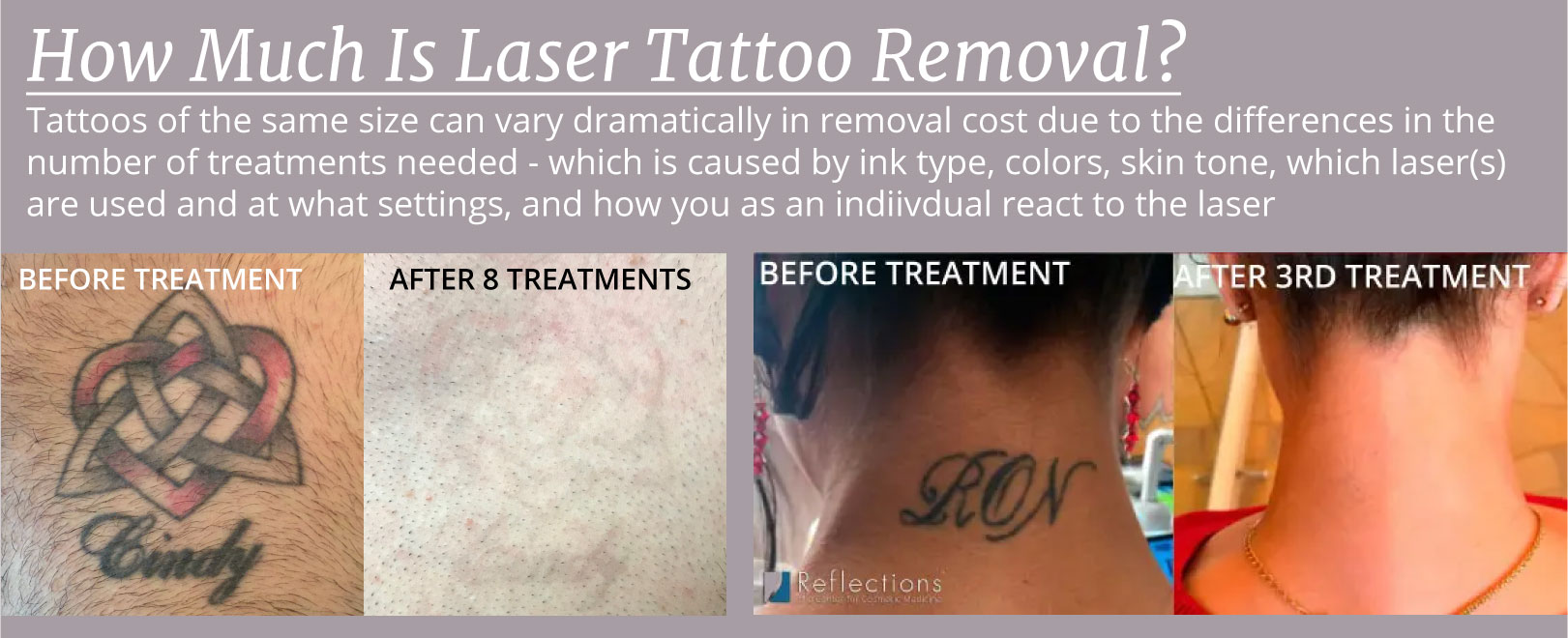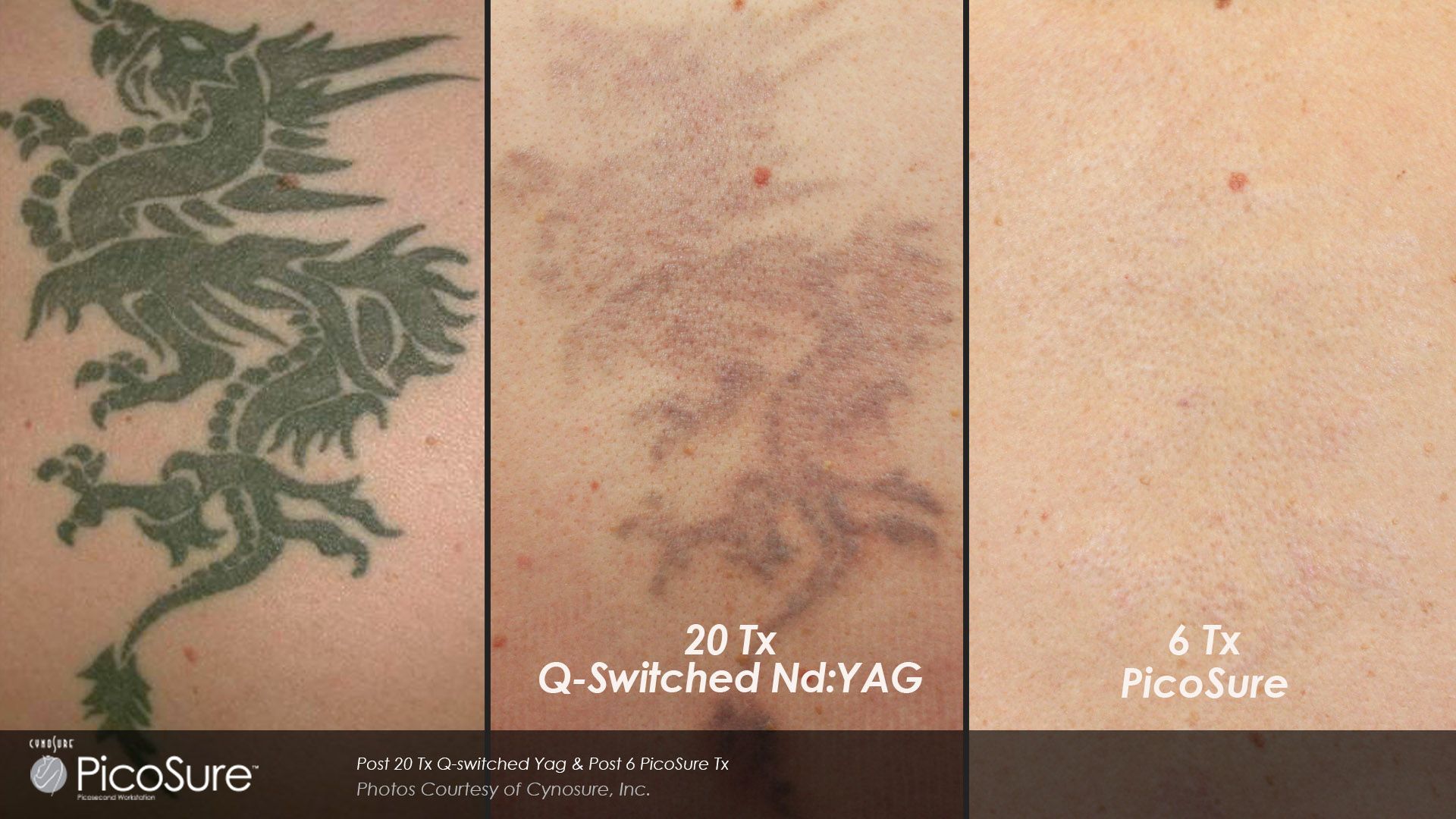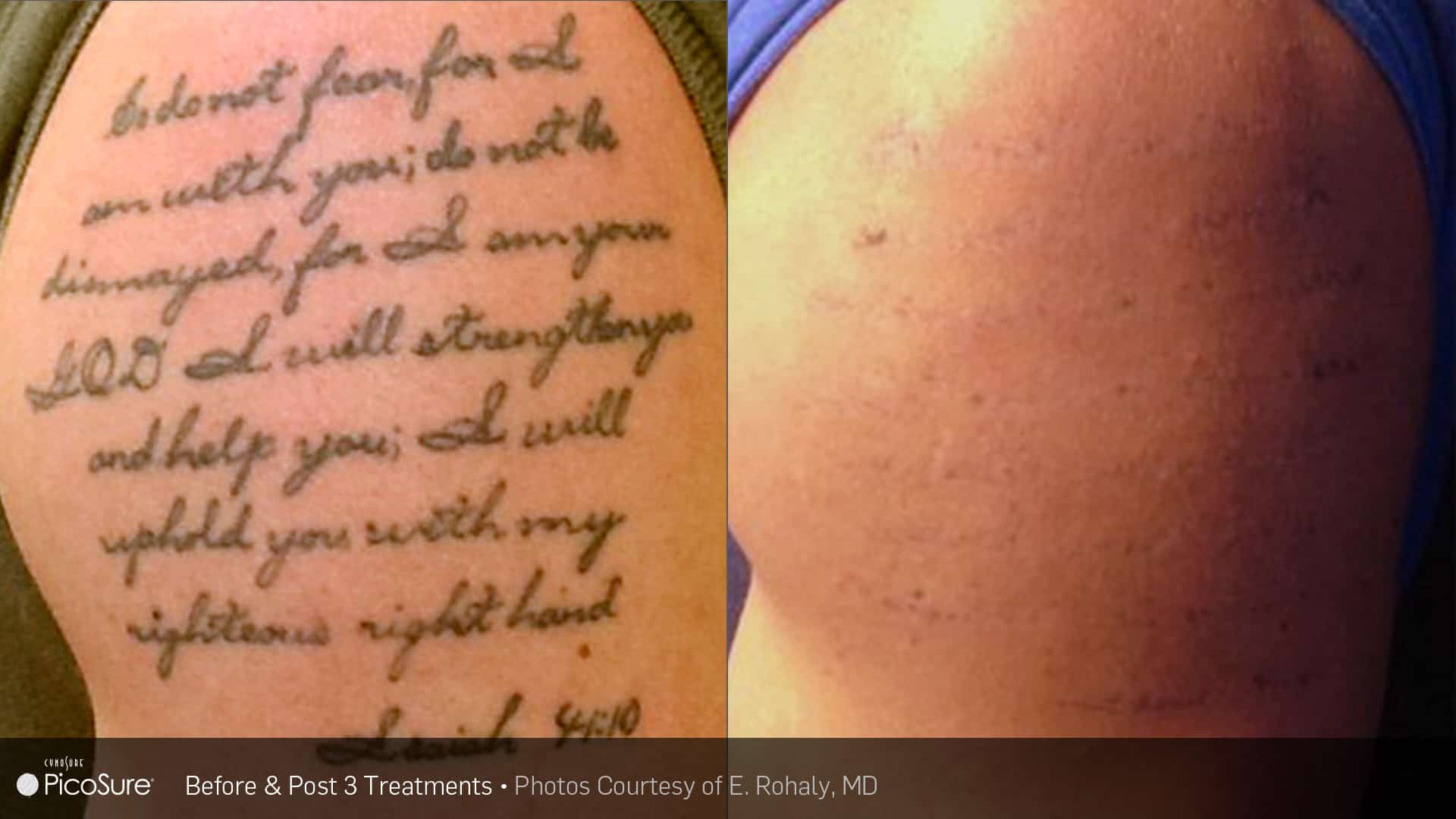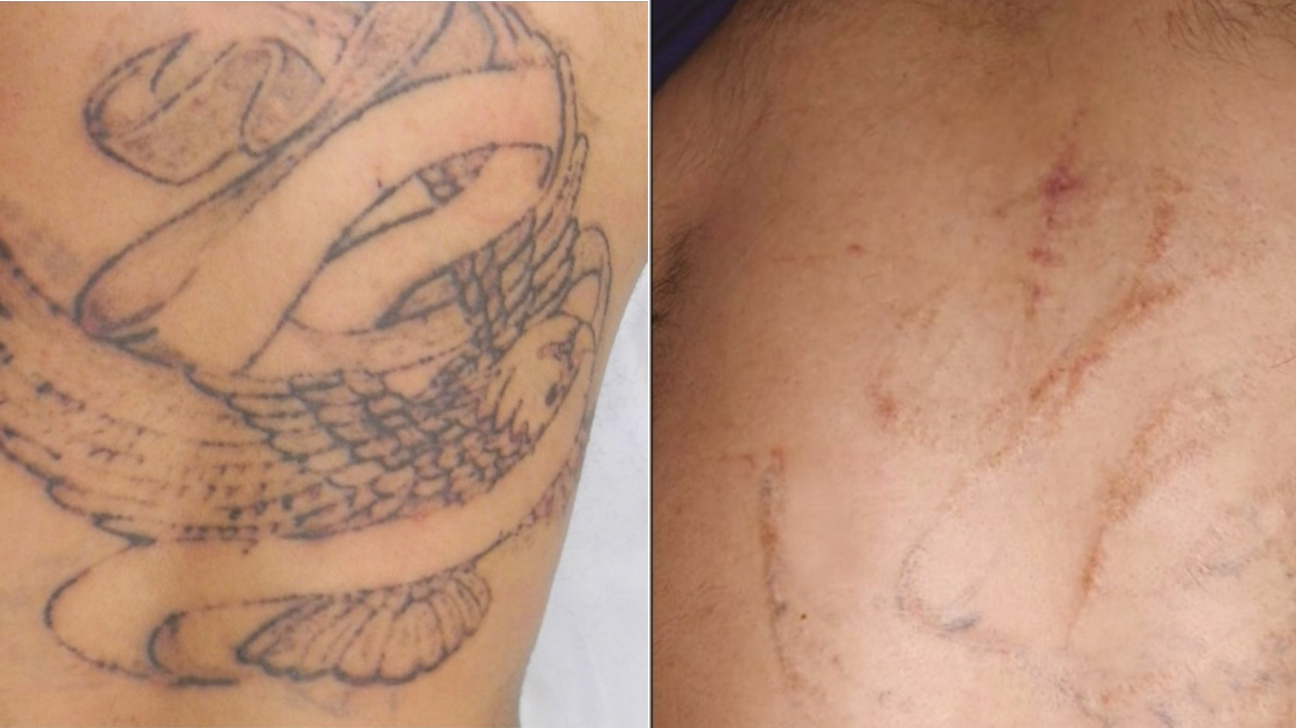How Much Is It To Get Your Tattoo Removed
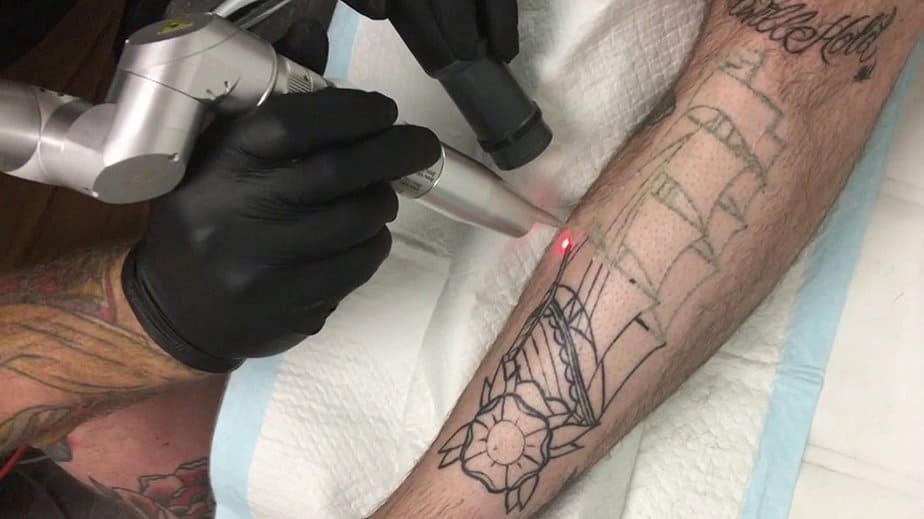
Tattoos, once considered permanent marks of self-expression, are increasingly subject to regret. Consequently, a burgeoning market has emerged around tattoo removal, leaving many individuals wondering about the financial commitment involved.
Understanding the cost of tattoo removal is crucial for those considering this procedure. The price can vary significantly based on a multitude of factors, making it challenging to provide a one-size-fits-all answer.
Factors Influencing Tattoo Removal Costs
Several key elements determine the final price tag. These include the tattoo's size, the inks used, its location on the body, and the chosen removal method.
Size is a primary driver, with larger tattoos requiring more treatment sessions and thus incurring higher costs. The type of ink, particularly vibrant colors or those containing metallic compounds, can be more difficult to remove, leading to more sessions and increased expense.
The location of the tattoo also matters; areas with greater blood flow tend to respond better to treatment, potentially reducing the number of sessions needed. Additionally, the clinic's location and the experience of the practitioner play a role in pricing.
Removal Methods and Their Costs
Laser removal is the most common and generally effective method. According to the American Academy of Dermatology, laser tattoo removal works by breaking down the tattoo ink into smaller particles that the body can then eliminate.
The cost per session for laser tattoo removal can range from $200 to $500 or more, depending on the factors mentioned earlier. Multiple sessions are invariably required, with the total number often ranging from 5 to 10 or even more, depending on the tattoo's characteristics.
Other, less common removal methods exist, such as surgical excision and dermabrasion. Surgical excision involves cutting out the tattooed skin and stitching the remaining skin together. This is generally reserved for smaller tattoos and can leave a scar.
Dermabrasion involves sanding down the skin to remove the tattoo. It is less effective than laser removal and can result in scarring. These methods have varying costs and are typically considered less desirable due to potential side effects and limitations.
Real-World Cost Examples
To illustrate the potential expenses, consider a small, black ink tattoo of approximately 2x2 inches. Removing this might require 5-8 laser sessions at $250 per session, resulting in a total cost of $1,250 to $2,000.
A larger, multicolored tattoo covering a significant portion of the back could easily necessitate 10-15 sessions at $400 per session, leading to a final cost of $4,000 to $6,000 or more. These are just estimations, and consulting with a qualified tattoo removal specialist is crucial for obtaining an accurate assessment.
Many clinics offer package deals or financing options to help make the procedure more affordable. Exploring these possibilities can significantly ease the financial burden of tattoo removal.
The Human Element
Beyond the financial considerations, the decision to remove a tattoo often carries emotional weight. For some, it represents a desire to move on from a past chapter. For others, it might be driven by professional or personal reasons.
Speaking to Sarah Miller, a 32-year-old teacher undergoing tattoo removal, highlights this aspect. "I got this tattoo when I was 18 and now it no longer reflects who I am. It's been a long and expensive process, but it's worth it to feel more confident in my own skin," she explained.
Conclusion
The cost of tattoo removal is a significant investment that requires careful consideration. Understanding the factors that influence pricing, exploring different removal methods, and considering personal circumstances are all crucial steps.
While the financial commitment can be substantial, for many, the emotional and psychological benefits of removing an unwanted tattoo outweigh the expense. Consulting with reputable professionals and exploring available financing options can help make this transformative process more accessible.
